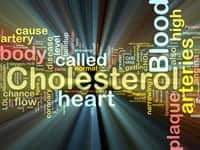| Appointment | Price |
| Blood Test by Doctor | One-off £39 admin fee (per visit) – plus labaratory cost (select your blood test for prices). – £5 surcharge on weekends |
To See Our Main Blood testing section for this, please visit Biochemistry Blood Testing page.
This blood test is used to screen for liver damage. Repeated LFT’s and further tests (see Full liver Profile) including a liver ultrasound may be needed to establish the exact diagnosis.
Liver disease may cause you to have weakness, loss of appetite, nausea, vomiting and abdominal swelling/ pain. It may also cause Jaundice, dark urine/ pale stools or itching symptoms.
Clues to the diagnosis comes from the various components of the liver blood test:
– Bilirubin– usually increased if too much is being produced or less bilirubin is being removed. This may be due to bile duct obstruction or problems with bilirubin processing.
– Total protein– is typically normal in liver disease.
– ALT/AST– very high levels are often seen in acute Hepatitis (due to infection, drugs and autoimmune diseases). Moderate increases are often seen in chronic hepatitis. Patients with blocked bile ducts, cirrhosis and liver cancer may only have slightly elevated/ near normal ALT levels.
– ALP– very high levels may indicate bile duct obstruction or inflammation. ALP can also rise in bone disease. Hence, if other liver enzymes are also raised, it suggests a liver disease. However, if they are normal, it may suggest a bone disease (especially if the bone screen is abnormal). ALP is also raised in ‘growing’ bones in children and after fractures.
– GGT– often used in conjunction with ALP to detect liver disease and bile duct pathology (as opposed to bone disease if ALP alone is raised). GGT is also raised after alcohol use, heart failure and with concomitant use of various medicines.
– Albumin– low albumin levels can indicate liver disease or protein losing kidney disease. It can also indicate severe inflammation or shock. High albumin usually suggests dehydration.



